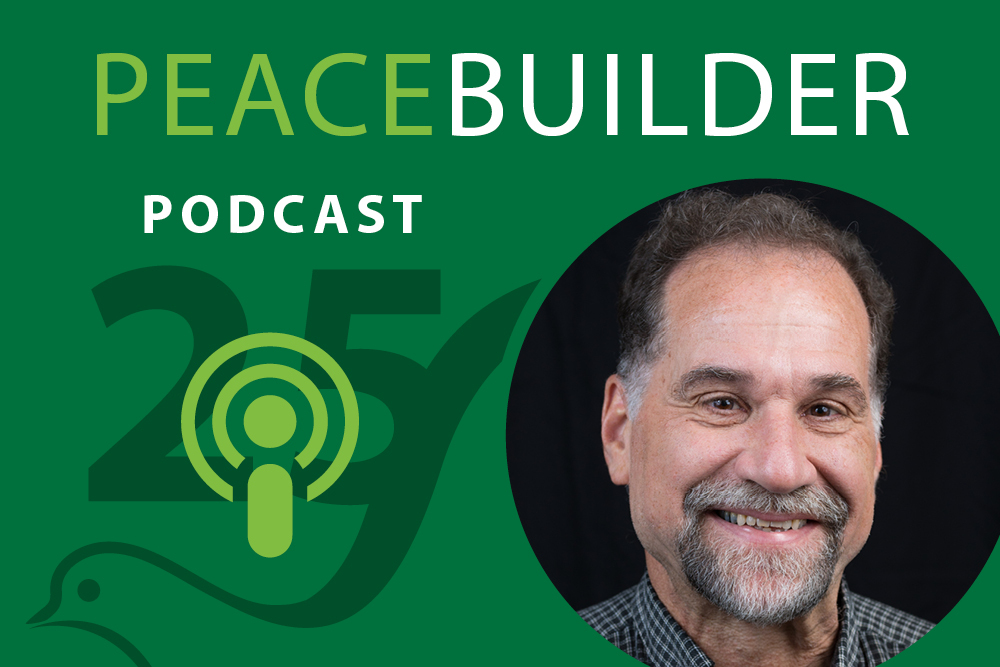The fifth episode of the Peacebuilder podcast features David Brubaker, dean of the school of social sciences and professions at Eastern Mennonite University, which includes the Center for Justice and Peacebuilding (CJP). In the episode, Brubaker talks about the environmental and generational changes that organizations now face, the tension between focusing on international versus domestic conflict, and global trends of income inequality.
The podcast is just one of the ways the center is celebrating its 25-year anniversary. Hosted by CJP executive assistant and anniversary celebration committee chair Patience Kamau MA ‘17, the 10-episode series features faculty and staff members reflecting on the history of CJP and their own peacebuilding work. A new episode drops every other week on the Peacebuilder website.
Brubaker came to CJP in 2004, when it was known as the Conflict Transformation Program. At the time, he taught organizational studies; he now teaches organizational behavior, development, and leadership. He’s also worked as a consultant with over 100 organizations, from non-profit to for-profit to governmental, in 12 different countries.
“There are just some really classic issues that tend to produce stress and conflict in organizations, no matter what part of the world they’re in or even what sector they’re in,” Brubaker says.
Two major challenges that all organizations are now facing, Brubaker explains, are changes in the environment and the generational shift away from baby boomer values to those of Generation X and millennials.
“Generational research has found that millennials, for example, have a much higher priority on work-life balance,” Brubaker says. “People aren’t willing to just sign over their lives to organizations, as happened with my parents’ generation and with mine as well.”
In his consulting practice, Brubaker has relied on all three academic pillars of CJP: conflict transformation, restorative justice, and trauma awareness and resilience, which he says are unique to be housed within one program.
As to what CJP could be doing better, Brubaker says that many practitioners have been attracted by the “siren song” of international work, “often at the cost of paying attention to growing economic and social polarization in our own country.” At the same time, though, the trends we see in the U.S. are happening on a global scale, he says.
“As the gap between the rich and the poor has grown around the world, we are seeing the rise of populism and nationalism because that’s how people give voice to their grievances,” says Brubaker. This feeds directly into his vision for CJP 25 years from now. He hopes by then the program will better address the intersection of politics and economics, by supporting those on the front lines of those conflicts.
“Those who are closest to the problem or the challenge are the ones best able to figure out how to beat it,” Brubaker says.
